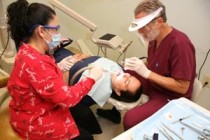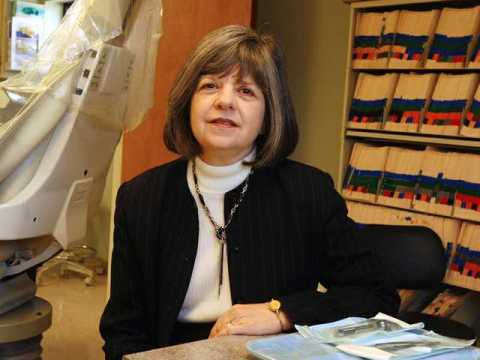Hall County in northeast Georgia, traditionally known as the gateway to the Blue Ridge Mountains, has a high uninsured rate. One of every four Hall residents has no health insurance, slightly higher than the state average.
But for many years now, a free health clinic has been giving thousands of these people primary care and medicines, as well as linking them to medical specialists when necessary.
The Good News Clinics in Gainesville is the biggest free clinic in Georgia. Its executive director, Cheryl Christian, who guided its growth spurt, recently announced her retirement.
When Christian took over as Good News leader in 2004, the clinics had 6,476 patient visits serving 2,400 patients. By last year, the numbers had increased to 21,427 patient visits serving 4,562 patients. (The name Good News Clinics refers to medical and dental clinics operated by the one organization.)
The people treated are Hall County’s uninsured, with incomes within 150 percent of the federal poverty level, which is $17,655 for an individual. “Most of our patients are working part-time jobs,’’ Christian says.
The Gainesville operation is part of Georgia’s Charitable Care Network, a collection of 100 nonprofit clinics across the state serving uninsured people.
The Affordable Care Act, passed in 2010 and now fully implemented, has not put much of a dent in the demand for services at these clinics, says Donna Looper, the network’s executive director.
A central reason for the continued demand is that Georgia has not expanded its Medicaid program. The ACA calls for all the states to expand the program to cover more low-income people, but the Supreme Court has ruled that the decision is up to the states.
Georgia’s political leaders, including Gov. Nathan Deal, have rejected expansion, citing the cost.
That has left hundreds of thousands of people in the “coverage gap’’ – making too much income to qualify for Medicaid, yet not enough to qualify for subsidies in the ACA exchange.
“Our numbers continue to grow each month,” Christian says.
Georgia charitable clinics “are working hard to fill in that gap,” says Looper. The state budget for fiscal 2016 has allocated $500,000 to the Charitable Care Network, the first such appropriation for the organization. Looper says Christian has been instrumental in the growth of the network.
Christian, 65, says Good News’ success has been a team effort. She credits the local hospital, Northeast Georgia Medical Center, with being “a strong partner.”
“Our board approached this as a community issue,’’ she adds. And medical director Dr. Sam Poole “was a real visionary. He saw the potential of what the clinic could be.”
The $1.3 million budget comes from foundations, churches, businesses, the United Way and individuals. Volunteering their services at the clinics are 43 physicians, five mid-level providers and 39 dentists.
“Cheryl is a leader in that community as well as the free clinic community,” Looper says. “It’s a national model.”
Most charitable clinics struggle to get specialized treatment for patients. But in the Gainesville area, 311 specialist physicians have signed up to help the clinics.
When she leaves in August, Christian plans “to travel, read, garden and enjoy retirement.” The organization is looking for a new executive director.


